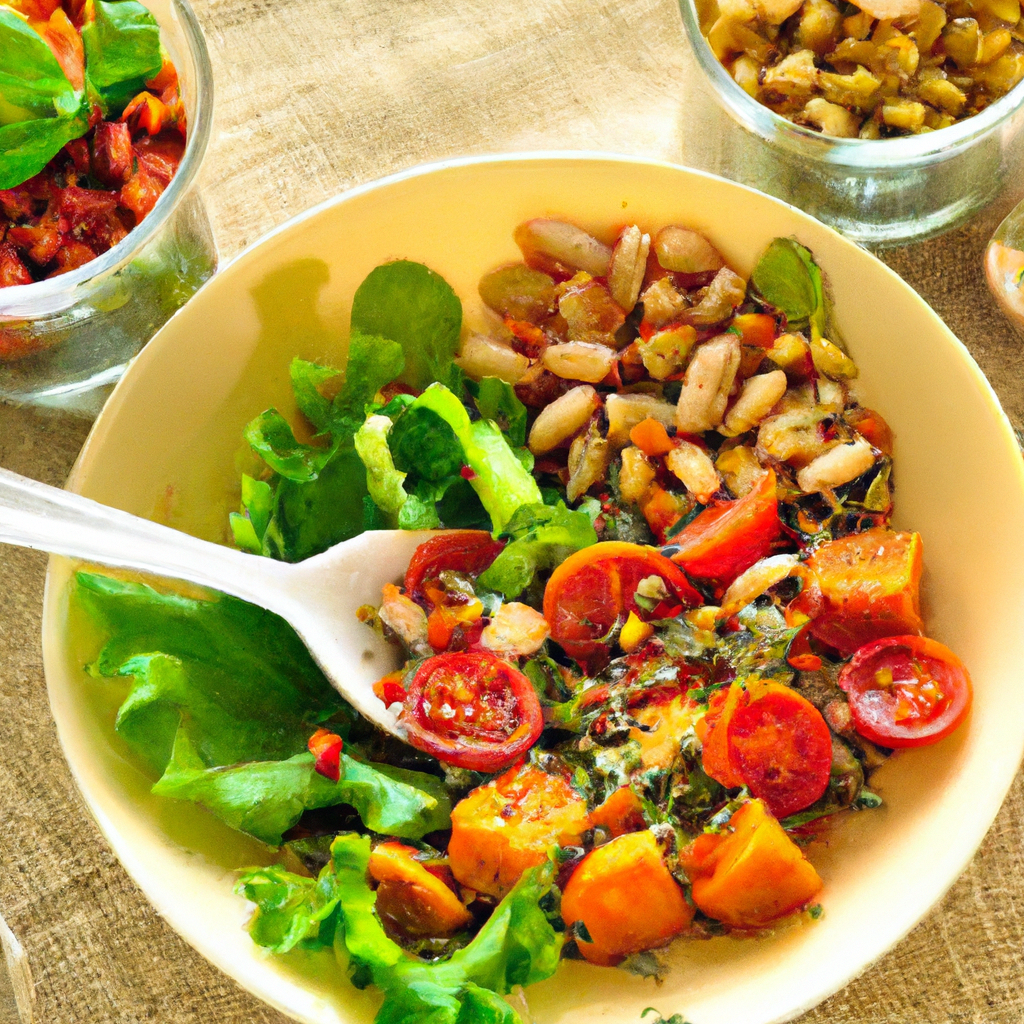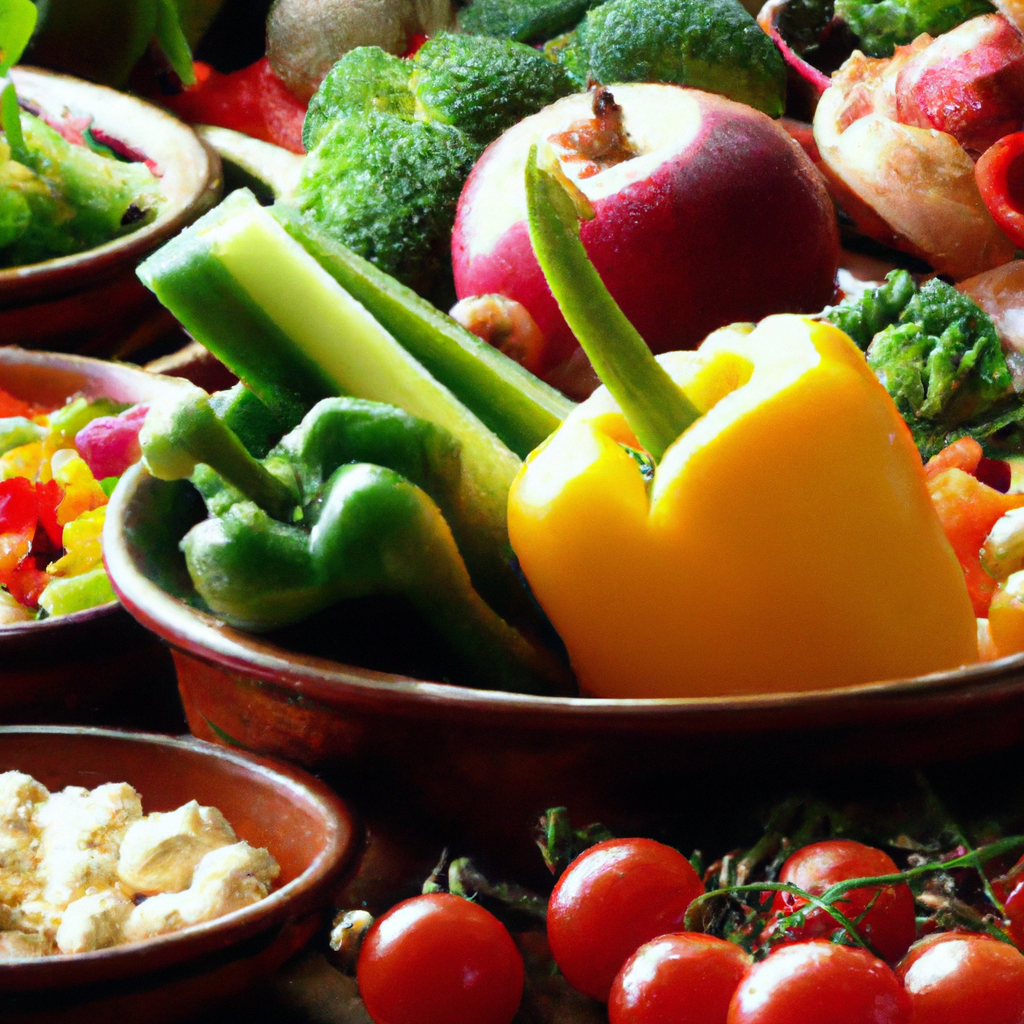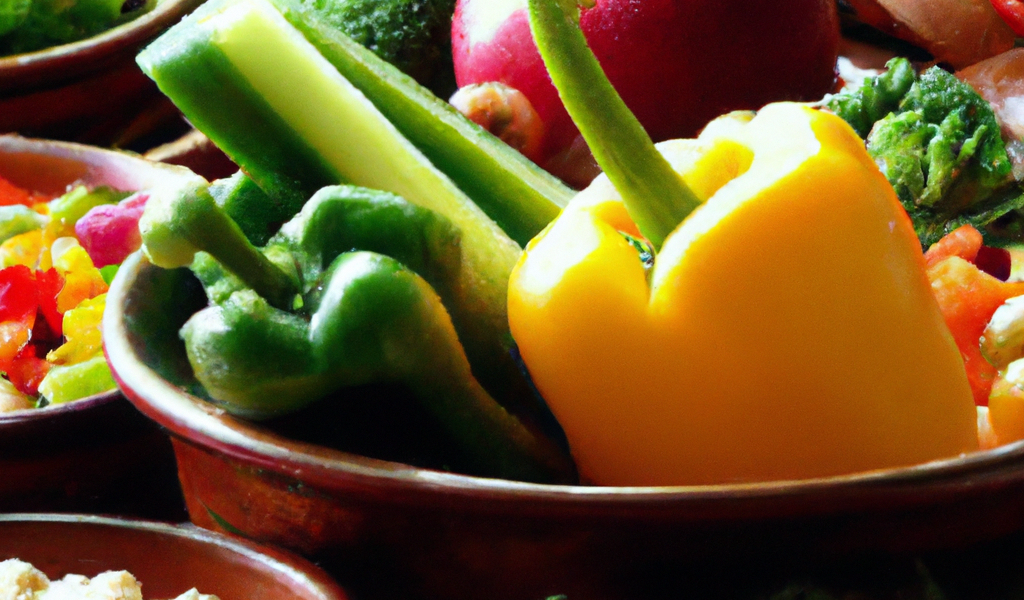The Vegan Blueprint For Optimal Nutrition
Are you curious about how to maintain optimal nutrition on a vegan diet? Look no further! In this article, you will discover the Vegan Blueprint for Optimal Nutrition. From essential nutrients to meal planning tips, this comprehensive guide will help you thrive on a plant-based diet. So, if you’re ready to unlock the secrets of nourishing your body without animal products, join us on this enlightening journey to a healthier, more compassionate lifestyle.
The Vegan Blueprint For Optimal Nutrition

Understanding Veganism and Optimal Nutrition
Veganism is a lifestyle choice that involves abstaining from the consumption of animal products, including meat, dairy, and eggs. People choose to follow a vegan diet for various reasons, such as ethical concerns for animal welfare, environmental sustainability, and potential health benefits. However, to ensure optimal nutrition on a vegan diet, it is essential to be mindful of the macro and micronutrients that might be lacking due to the exclusion of animal products from the diet.
Macro and Micronutrients in a Vegan Diet
A well-planned vegan diet can provide all the necessary macro and micronutrients needed for healthy living. Macro and micronutrients, such as carbohydrates, proteins, fats, vitamins, and minerals, play vital roles in maintaining overall health and preventing nutrient deficiencies. While carbohydrates and fats are relatively easier to obtain on a vegan diet, meeting protein, iron, calcium, omega-3 fatty acids, and vitamin B12 requirements may require a bit more attention and planning.
Building a Balanced Vegan Plate
To ensure a balanced vegan plate, it is essential to incorporate a variety of plant-based foods into your meals. The plate should consist of whole grains, legumes, fruits, vegetables, nuts, and seeds in appropriate proportions. Whole grains provide carbohydrates, fiber, and some essential nutrients, while legumes, such as beans, lentils, and chickpeas, are excellent sources of protein and iron. Fruits and vegetables offer an array of vitamins, minerals, and antioxidants, while nuts and seeds provide healthy fats and additional protein. Balancing these food groups will help achieve optimal nutrition on a vegan diet.

Optimizing Protein Intake on a Vegan Diet
Protein is an essential macronutrient required for various bodily functions, including the building and repair of tissues, enzymes, and hormones. While animal products are typically high in protein, there are plenty of plant-based sources that can help vegans meet their protein needs. Legumes, tofu, tempeh, seitan, and edamame are excellent sources of protein. Additionally, incorporating whole grains and consuming a variety of nuts and seeds can also contribute to an adequate protein intake. The key is to consume a diverse range of plant-based proteins to ensure the intake of all essential amino acids.
Ensuring Sufficient Iron Levels on a Vegan Diet
Iron is a crucial mineral that plays a vital role in the production of hemoglobin, a protein in red blood cells that carries oxygen throughout the body. Although animal products are rich sources of iron, vegans can obtain sufficient iron from plant-based sources. Legumes, such as lentils and chickpeas, as well as tofu and fortified plant-based milk, are great iron sources. Vitamin C-rich foods, such as citrus fruits, strawberries, and bell peppers, can also enhance iron absorption. It is important to monitor iron levels and, if necessary, consider iron supplements to prevent iron deficiency anemia.
Meeting Calcium Needs without Dairy Products
Calcium is essential for maintaining strong bones and teeth, and it plays a crucial role in muscle and nerve function. Contrary to popular belief, dairy products are not the only source of calcium. Many plant-based foods are rich in calcium, including leafy greens (like kale and broccoli), tofu, almonds, and fortified plant-based milks and juices. Ensuring an adequate calcium intake on a vegan diet can be achieved by incorporating these foods into daily meals. Additionally, vitamin D, which helps with calcium absorption, can be obtained through sunlight exposure or vegan-friendly supplements.
Getting Essential Omega-3 Fatty Acids on a Vegan Diet
Omega-3 fatty acids, particularly EPA and DHA, are essential for brain function, heart health, and reducing inflammation in the body. While fatty fish is a common source of these fatty acids, vegans can obtain them from plant-based sources. Flaxseeds, chia seeds, hemp seeds, walnuts, and algae-based supplements are excellent choices for getting omega-3 fatty acids. Including these foods in your diet can help maintain optimal levels of these essential fats while following a vegan lifestyle.
Vitamin B12 and Other Nutrients Vegans Should Monitor
Vitamin B12 is one nutrient that is difficult to obtain from plant-based sources alone. Vegans should consider incorporating fortified foods, such as plant-based milk and breakfast cereals, or taking a B12 supplement to ensure adequate levels of this vitamin. Other nutrients that may require attention in a vegan diet include zinc, iodine, and selenium. Plant-based sources, such as legumes, nuts, and seeds, can provide these nutrients, but monitoring their intake and considering supplementation if necessary is important for optimal nutrition.
Supplements and Fortified Foods for Vegans
While a well-planned vegan diet can provide all necessary nutrients, some vegans may benefit from supplements or fortified foods to ensure optimal nutrition. Vitamin B12, vitamin D, omega-3 fatty acids, and iron are common nutrients that may require supplementation, especially for those who have limited access to certain food sources or have specific dietary restrictions. Consulting with a healthcare professional or registered dietitian can help determine individual supplement needs based on specific dietary requirements and potential nutrient deficiencies.
Plant-Based Sources of Key Nutrients
Incorporating a variety of plant-based sources into your diet will ensure you meet the nutritional needs of a vegan lifestyle. Legumes, whole grains, fruits, vegetables, nuts, seeds, and plant-based milks and yogurts are all excellent sources of various nutrients. Experimenting with different recipes and cooking methods can make meal planning exciting and enjoyable. Consider exploring different cuisines and trying new dishes that highlight these plant-based ingredients to maximize your nutrient intake while following a vegan diet.
By understanding the foundations of a vegan diet and being mindful of the specific nutrients that may require attention, you can confidently follow the vegan blueprint for optimal nutrition. Remember, a well-planned and balanced vegan diet can provide all the necessary macro and micronutrients your body needs to thrive while enjoying the ethical and environmental benefits of a vegan lifestyle.

